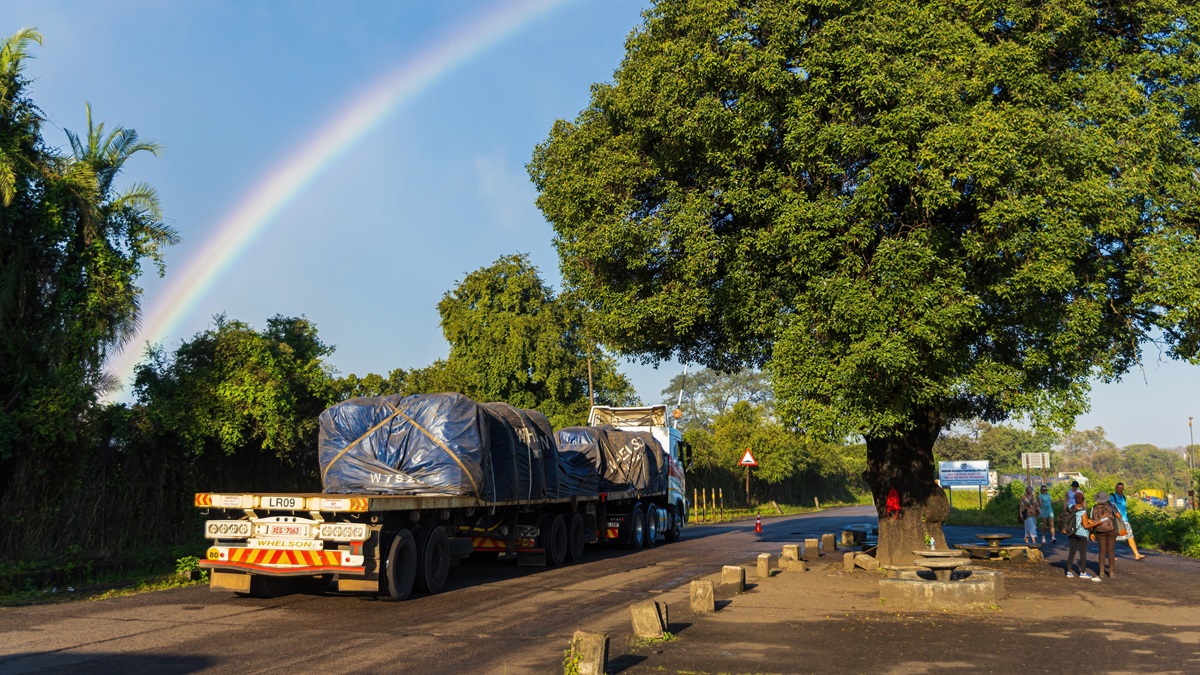Hybrid capacity building offered by ASYCUDA, UN Trade and Development’s customs automation programme, bears fruit across a growing number of developing economies.

© Shutterstock/Framalicious | A truck at the border crossing between Zambia and Zimbabwe. Both countries use UN Trade and Development’s ASYCUDA technology for customs automation.
Boosting its digital infrastructure, the Zimbabwe Revenue Authority recently upgraded to the latest version of the ASYCUDAWorld software, an integrated and automated system for customs data from UN Trade and Development (UNCTAD).
The change was implemented “with minimal challenges”, says Adrian P Swarres, the authority’s head of compliance and automation, noting that the training his organization receives from UNCTAD helped smooth the process.
“We have been capacitated to continue to support and maintain the new ASYCUDA platform using our own resources,” Mr Swarres says, “Where challenges are faced, the UN Trade and Development team is easily accessible”.
Since 1981, the ASYCUDA programme has supported some 100 economies to automate and modernize their customs systems, expediting goods clearance and easing trade.
As UNCTAD’s largest technical assistance programme, ASYCUDA prioritizes capacity building to equip countries with the tools and knowledge to maintain and adapt their customs systems for improvements over time.
Blended learning offers flexibility and inclusivity
Central to ASYCUDA’s capacity-building work is its blended learning methodology that combines traditional in-person training with e-learning, fostering the development of local expertise in user countries worldwide.
The e-learning platform, which expanded substantially since the COVID-19 pandemic, currently features four comprehensive courses, more than 100 video tutorials and over 40 user guides.
It also provides a forum for knowledge sharing and the exchange of ideas across a diverse range of users, including customs officers, traders, information technology (IT) experts, and officials from partner government agencies.
Overall, ASYCUDA provides capacity-building mainly in three forms: technical and functional training programmes focusing on IT and customs, awareness-raising seminars and workshops, and study tours for peer-learning.
To facilitate global learning, ASYCUDA has regional training centres strategically located across Africa, Asia and Latin America, including Gibraltar, Kuala Lumpur, Lusaka, Port of Spain and Suva.
Developing countries make tangible progress
In Moldova, more than 1,200 customs officers and traders were trained by ASYCUDA in July and August on using a new computerized transit solution to facilitate access to European-Union markets.
In Jamaica, ASYCUDA trained around 2,000 users of the country’s electronic single window for trade system during 2023, 64% of them women.
The system, which uses ASYCUDA technology, connects multiple government agencies responsible for clearing cross-border goods within one IT platform, helping save time and costs for traders.
In the Pacific, 14 nations have benefitted from ASYCUDAWorld and electronic single windows in terms of efficiency, transparency, improved government revenues and trade statistics, accelerating progress towards sustainable and inclusive development.
Additionally, the ASYCUDA Support Mechanism for the Pacific (ASMP) delivers innovative and blended learning on a yearly basis through support coordinators and an ongoing rotation of fellows nominated by user countries in the ASMP office in Fiji.


